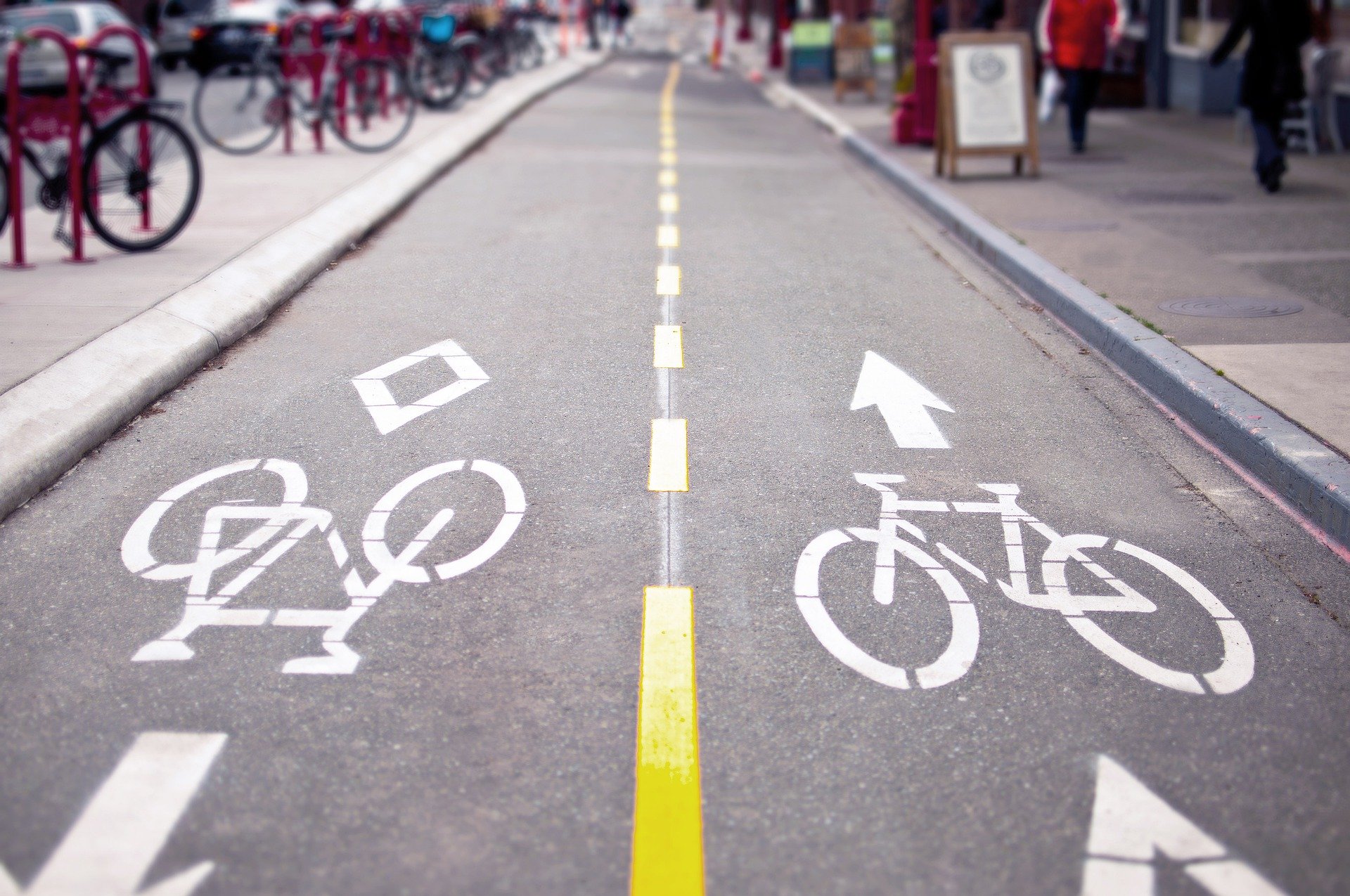£2 billion package to create new era for active transport
Posted on in Cycles News
 On Saturday, Transport Secretary Grant Shapps announced some very significant "once in a generation" measures to get more people cycling and walking.
On Saturday, Transport Secretary Grant Shapps announced some very significant "once in a generation" measures to get more people cycling and walking.
Following unprecedented levels of active transport across the UK
during the pandemic, the Department for Transport (DtF) have announced plans that will help encourage more people to choose
alternatives to public transport. These plans will help to make healthier habits easier and helping make sure the road, bus and rail
networks are ready to respond to future increases in demand.
This is set to include pop-up bike lanes with protected space for cycling, wider pavements, safer junctions, and cycle and bus-only corridors will be created in England within weeks as part of a £250 million emergency active travel fund - the first stage of a £2 billion investment, as part of the £5 billion in new funding announced for cycling and buses in February.
The government will fund and work with local authorities across the country to help make it easier for people to use bikes to get around - including Greater Manchester, which wants to create 150 miles of protected cycle track, and Transport for London, which plans a "bike Tube" network above Underground lines.
Fast-tracked statutory guidance, published on Saturday and effective immediately, will tell councils to reallocate roadspace for significantly-increased numbers of cyclists and pedestrians. In towns and cities, some streets could become bike and bus-only while others remain available for motorists. More side streets could be closed to through traffic, to create low-traffic neighbourhoods and reduce rat-running while maintaining access for vehicles.
Vouchers will be issued for cycle repairs, to encourage people to get their old bikes out of the shed, and plans are being developed for greater provision of bike fixing facilities. Many more will take up the Cycle to Work scheme, which gives employees a discount on a new bike.
Grant Shapps promises to set out further measures to make a ‘once in a generation' change to the way people travel in Britain over the next few months.
These will include tough new standards for cycling infrastructure;
- a new national cycling champion to inspire us
- much closer links with the NHS, with GPs prescribing cycling to help us get fitter
- legal changes to protect vulnerable road users
- at least one "zero-emission city," with its centre restricted to bikes and electric vehicles
- and the creation of a long-term cycling programme and budget, just like we have for our roads
The Government will focus on the following methods of active transport and eco-friendly solutions:
Encouraging Cycling and Walking
Transport Secretary Grant Shapps reiterated the message that was put forward to the Government by the BA last week, which was that with public transport's capacity severely restricted at this time, our trains and buses could become overcrowded and our roads gridlocked - holding up emergency services, critical workers and vital supplies.
An updated Cycling and Walking Investment Strategy will be launched by the Prime Minister in the summer, with further measures to transform cycling and walking to deliver the government's aims to double cycling and increase walking by 2025 - including:
- the creation of a national cycling and walking commissioner and inspectorate
- higher standards for permanent infrastructure across England
- getting GPs to prescribe cycling and exercise
- creating a long-term budget for cycling and walking similar to what happens for roads
Ruth Cadbury MP, the co-chair of the All-Party Parliamentary Group on Cycling and Walking, said: "It is good to see that several of the recommendations from our ‘Get Britain Cycling' report (2013) will now become government policy. What we heard today is a commitment to see active travel modes as a significant solution to reduce pollution and congestion and create a healthier and fitter society."
She added: "The message from government was very clear and I hope that Local Authorities around England are bold in following this advice and taking up the support offered."
E-Scooter Trials
E-scooter trials will also be brought forward from next year to next month to help encourage more people off public transport and onto greener alternatives. Originally set to take place in 4 Future Transport Zones, the trials of rental e-scooters - which will now be offered to all local areas across the country - will allow government to assess the benefits of e-scooters as well as their impact on public space, with the potential to see rental vehicles on UK roads as early as June.
Funding Charging Points
As the government aims to encourage people to choose greener forms of travel when the coronavirus restrictions are lifted, a further push is being made to encourage drivers to purchase an electric vehicle. An extra £10 million - double the current funding amount - is being committed to the on street residential chargepoint scheme which will allow local authorities to install up to 7,200 devices, making it more convenient to charge and own an electric vehicle.
Improving Journeys with Technology
The government is also working alongside the tech sector to see how technology could be used to help commuters stagger their journeys and advise on alternative modes of travel. Leading transport tech experts including Google, Zipabout and Trainline met this week at a roundtable chaired by the Transport Secretary, to explore how technology could help ease overcrowding and reduce the risk of a second spike in coronavirus cases.
Potential solutions could include mobile phone apps warning when public transport is particularly busy or advising on a quieter time to travel, allowing people to flex their hours and prevent the transport network from being overburdened.





















